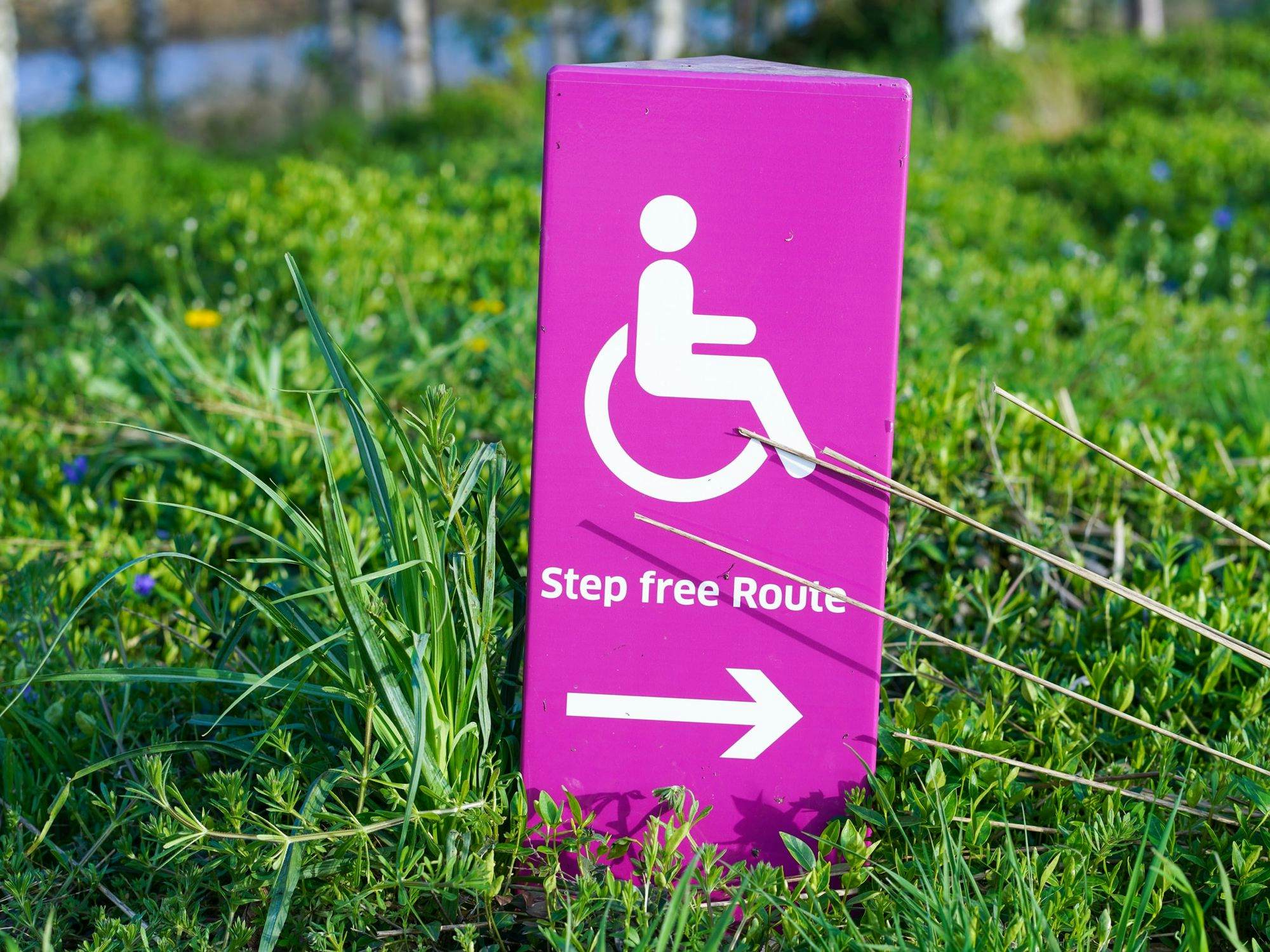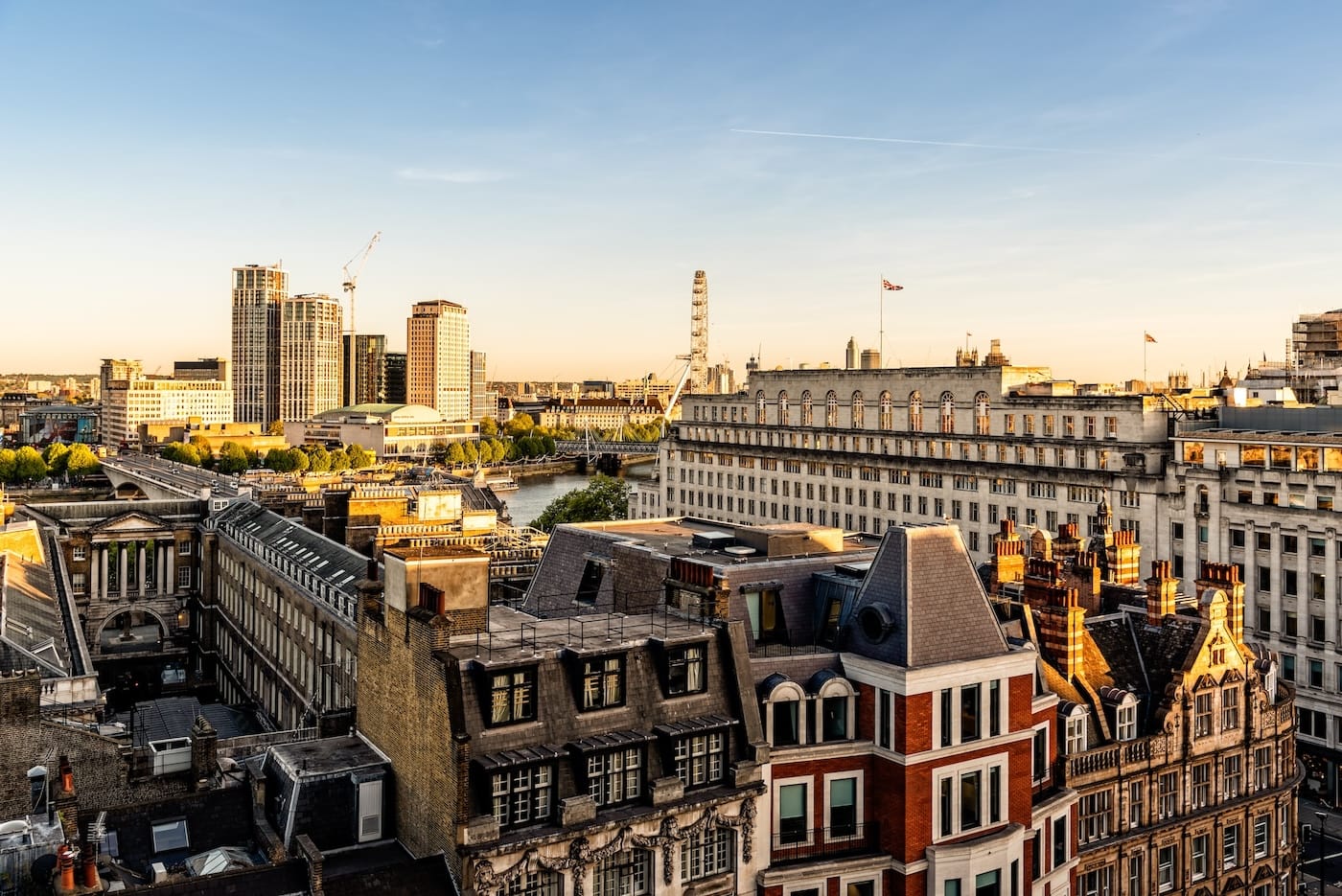As we move into 2026, the corporate events landscape is entering an exciting phase of maturity and strategic refinement. After years of navigating unpredictability, the sector is stabilising, creating fresh opportunities for event professionals who can demonstrate measurable business impact whilst addressing economic pressures head-on with smart technology continuing to act as a major driver of innovation and transformation across the industry. Here are the key trends shaping corporate events in 2026.
1. Strategic Events Management: From Cost Centre to Revenue Driver
There's a fundamental shift happening in how organisations perceive corporate events. Rather than viewing events as emotional expenditures that need constant justification, forward-thinking businesses are recognising them as strategic assets that directly contribute to business growth. This represents a significant opportunity for event professionals to reposition their role within organisations.
The opportunity: With 85% of event professionals expressing optimism about the sector in 2026 (the highest level in five years according to the Amex GBT Global Meetings & Events Forecast), there's genuine momentum behind this shift. This confidence isn't misplaced; it stems from successfully positioning events as business investments that drive measurable outcomes rather than discretionary spending.
What this means for planners: Transform your approach from defensive budget requests to proactive business partnerships. Instead of justifying costs, focus conversations on how events drive revenue, strengthen client relationships and accelerate business objectives. Organisations that develop robust event management policies by incorporating clear ROI metrics will find themselves best positioned to secure and even grow event budgets in this environment.
UK-specific challenges: Whilst the opportunity is real, UK event professionals should note that M&E spend will likely be particularly budget-conscious in 2026. Rising supplier costs driven by increases in national insurance, taxes, labour, utilities and F&B mean that managing stakeholder expectations will become an increasingly important skill. (BCD M&E) Those who can articulate value clearly will stand out.
2. AI Everywhere: From Hype to Practical Implementation
Artificial intelligence has crossed a critical threshold in the events industry. We're no longer in the experimental phase… AI has moved into genuine practical implementation that's delivering real efficiency gains and enhanced attendee experiences. The Amex GBT Forecast reveals that 50% of event professionals are planning to embrace AI throughout the entire meetings journey in 2026.
The opportunity spans three key phases:
- Pre-event: 34% will harness AI to generate creative concepts, whilst 31% will use it for content creation, dramatically reducing the time and resources required for event preparation.
- During the event: 40% will deploy AI-powered event apps that deliver personalised agendas to attendees, creating more relevant experiences at scale.
- Post-event: 28% will leverage AI for post-event evaluation, extracting insights faster and more comprehensively than traditional methods allow.
Real-world impact: The practical benefits are compelling. As Mohammad Yunus from VFairs shared at Event Tech Live, AI chatbots can now successfully answer 95% of attendee queries, which dramatically reduces operational workload and allows human team members to focus on higher-value interactions. AI-powered agenda tools can update dynamically, cutting finalisation time from days to mere minutes. Presentation creation tools like Gamma are reducing what once took hours into tasks completed in under three minutes.
The reality check: Whilst the potential is significant, data quality, compliance and integration have emerged as more substantial barriers than cost. Multiple panellists at Event Tech Live emphasised that human oversight remains essential; the technology still requires human judgement for quality control and strategic direction.
How to start: Begin with low-cost pilot projects between £5,000-£10,000 to validate impact before committing to wider adoption. Explore accessible tools like Clay, Gamma, Relay, Hey Gen and Notebook LLM. However, always ensure any AI tools you implement meet regional data privacy regulations; this is particularly important for Europe-based events.

3. The Cost Conundrum: Doing More with Constrained Budgets
Budget pressure represents the number one challenge facing event professionals in 2026, with 38% citing cost as their primary concern and 32% pointing to broader economic uncertainty, according to the Amex GBT Forecast. Seven in ten M&E professionals anticipate cost increases in the year ahead. Rather than viewing this as purely a limitation, savvy professionals are finding that it's driving innovation and smarter decision-making.
The top meeting types expected to see cost increases:
- Conference without trade show/exhibit
- Incentive/special event
- Product launch
- Healthcare professional meetings
- Internal team meeting/training
The opportunity: Budget constraints are pushing event professionals to think more strategically about where and how they deliver value. 35% are successfully seeking supplementary funding through sponsorship, opening new partnership opportunities. Others are capitalising on attendees already gathered by adding ancillary meetings to major congresses, scheduling events on traditionally less popular days like Mondays and Fridays to secure better rates or charging premium fees for exclusive C-suite access.
UK-specific strategies:
- Secondary cities: The rising costs in London are driving increased demand for secondary cities like Manchester, Birmingham, Edinburgh and Liverpool, which are benefiting from infrastructure investment and offer compelling value.
- Regional focus: There's a growing focus on regionally sourced UK events with less interest in expensive long-haul destinations, which creates opportunities for domestic venues and suppliers.
- Consolidation: We're also seeing a strategic shift towards fewer meetings with higher average spend per event, allowing professionals to focus budgets on client-facing events that directly boost the bottom line.
- Payment terms: Suppliers offering extended payment terms of 30+ days post-event are gaining a competitive advantage in winning business. (BCD M&E)

4. Return on Experience (ROE): The New ROI
Traditional ROI metrics are evolving into something arguably more meaningful. Return on Experience focuses on how effectively an event is delivered against both strategic and creative objectives. The fundamental question becomes: did attendees walk away feeling genuinely engaged and inspired?
Why this matters now: Businesses are recognising that attention has become a crucial resource alongside traditional inputs like labour and capital. When corporations invest in immersive experiences, they're making a strategic investment in capturing people's attention, arguably the most lacking resource in today's distracted world, as BCD M&E notes.
What attendees are asking for reveals clear opportunities:
- 42% want more interactive sessions like workshops
- 40% want more social activities and networking opportunities
- 40% want visible sustainability measures
- 37% want more personalised experiences
(Amex GBT Forecast 2026)
The design shift: Sessions are becoming shorter with longer networking breaks, reflecting that attendees want events where they can be active participants rather than passive observers. As Hannah Van Nostren from CTO Craft emphasised at Event Tech Live: "The networking area is the biggest opportunity for attendee experience."
Measuring effectively: 28% of professionals plan to use AI for post-event evaluation in 2026 (Amex GBT). Behavioural data tracking tools now enable real-time event experience feedback, reducing reliance on post-event surveys that often suffer from low response rates. JP Morgan Chase's Felicity Saras shared a compelling insight at Event Tech Live: attendance rate (the percentage of invited clients who actually show up) correlates strongly with overall event success, offering a simple but powerful metric.
5. Sustainability: From Compliance to Competitive Advantage
Sustainability has completed its journey from optional consideration to a foundational requirement. Almost one in four meeting professionals report that attendees are now actively demanding visible sustainability actions, according to the Amex GBT Forecast.
Current adoption:
- 38% have implemented sustainable meetings policies
- 34% are minimising disposables and prioritising sustainable materials
- 33% are offering sustainable food & beverages
The measurement gap: Only 25% currently track CO2e emissions, and just 28% will prioritise improvements to sustainability metrics in 2026 (Amex GBT). This gap between action and measurement presents both a challenge and a significant opportunity for professionals who can develop robust tracking systems and communicate their sustainability impact effectively.
UK and European leadership: EU directives continue to sharpen focus on supply chain and Scope 3 emissions, with cities like Amsterdam and Barcelona leading the way. The UK's CSRD implementation is pushing organisations to disclose detailed sustainability metrics, creating opportunities for event professionals who can help their organisations meet these requirements.
The practical benefit: Local sourcing creates a triple win, it saves on transportation costs, reduces emissions and promotes local economic capacity. Similarly, plant-based food options align with sustainability goals whilst typically reducing food costs, proving that sustainable choices can also be financially smart choices.

6. Creative Experiential Design: Beyond Standard Formats
We're witnessing a significant shift towards creating genuinely valued and immersive experiences rather than defaulting to repetitive, traditional event formats. Interestingly, B2B corporations are increasingly adopting experiential approaches that were traditionally more prevalent in B2C environments, blurring the lines between business and consumer event design.
The "money can't buy" factor: M&E planners are seeking exclusive, high-value experiences with a notable transition towards exclusive retreats and resort-style properties. There's a particular focus on integrating access to premium sports events like tennis or Formula 1, creating memorable experiences that extend beyond traditional conference formats.
Real-world innovation from Event Tech Live 2025:
John Fletcher and his colleague from Google showcased how over 1,600 participants created personalised AI-generated music tracks and album covers as unique takeaways at the ZERO event, effectively turning attendees into active brand storytellers who shared their unique creations.
Lydia Richie from Deal explained the evolution of booth activations: "We've moved from honey trap to education. A smoothie station where drink names tie to product offerings organically sparks conversations about the company's full capabilities," demonstrating how experiential design can drive substantive business conversations.
At COP28, more than 8,000 sustainability pledges were made via an AI-powered "Tree of Life" digital experience, with attendees interacting with an AI character called "Mother Nature," proving that technology and experience can combine to drive meaningful action.
The design philosophy: As Rich Atkinson-Toal from Amex GBT emphasised at Event Tech Live: "Start with the human emotion you want to evoke, not the technology itself. Immersion should translate to authentic, measurable impact rather than superficial spectacle." This human-first approach ensures that creative experiential design serves strategic objectives rather than simply creating wow moments without substance.
7. Technology Integration & The Hybrid Reality
Technology has become crucial for maximising efficiency across the entire M&E lifecycle. When asked about the greatest benefit of deploying technology, event professionals valued most how it enabled them to deliver improved experiences, according to the Amex GBT Forecast – a telling prioritisation that puts attendee value first.
Platform selection priorities from Event Tech Live:
- Strong onboarding processes and responsive human support remain essential, particularly for managing event-day issues when timing is critical.
- API compatibility with CRM systems has emerged as a critical requirement, enabling seamless data flow between platforms.
- Finally, having named contacts or dedicated project managers significantly strengthens trust and partnership between clients and technology providers.
The hybrid reality check: According to the Amex report, more than half of professionals expect the majority of meetings to be in-person in 2026. Businesses are increasingly realising that serving two formats simultaneously is both expensive and operationally difficult, often resulting in compromised experiences for both audiences.
When hybrid makes strategic sense: AI-powered language translation supporting up to 10 languages makes hybrid formats genuinely valuable for truly global audiences where geography presents real barriers to participation. The key distinction is intentional design for specific strategic purposes rather than defaulting to hybrid formats simply because the technology exists.
8. Inclusion & Accessibility: Non-Negotiable Standards
35% of venues have implemented accessibility measures, including accessible transportation, wheelchair-friendly facilities, captioning and low-sensory rooms, according to the Amex GBT Forecast. Whilst this represents progress, it also reveals that significant opportunity remains for venues and event professionals to differentiate themselves through comprehensive accessibility provision.
Multi-generational design: With five generations now working side-by-side, successful events are designing micro-communities with tailored spaces and experiences to ensure every generation feels genuinely included rather than merely accommodated.
Practical innovation from Event Tech Live:
- Badge stickers using green/yellow/red light systems allow attendees to indicate their networking openness, reducing social anxiety suggested by Hannah Van Nostren.
- Post-it walls at registration enable attendees to share mentor advice, creating immediate value and community.
- Personalised badges that print attendees' favourite song or hobby provide natural conversation starters.
- In-session networking activities encourage attendees to find "conference buddies," fostering connections that often extend beyond the event itself.
UK venue expectations: UK venues are increasingly expected to provide comprehensive accessibility information upfront, including detailed access statements, sensory maps and quiet spaces, not as optional extras but as standard provision.

Looking Ahead: Where the Industry Is Heading
2026 represents a pivotal year where the events industry moves decisively from reacting to external pressures towards proactively shaping experiences that deliver measurable business value. For UK event professionals, the landscape ahead is rich with possibilities… increased costs, evolving regulatory requirements and shifting attendee expectations are creating space for innovative thinking and creative problem-solving.
As Melissa Moten from BCD M&E's The Collective stated: "Corporations are laser-focused on how events move the dial on their business in 2026. This is a breath of fresh air for suppliers. We've wanted this outcome for decades."
What we're likely to see more of:
Refined policies: Event policies are evolving rapidly, with 76% now using formal approval processes compared to just 47% previously, according to Amex GBT. Many organisations will be integrating sustainability goals, ROI metrics and AI guidelines compliant with data privacy regulations into these frameworks, creating clearer strategic direction for event programmes.
Piloting AI strategically: AI adoption will continue its practical expansion, particularly in high-impact areas like attendee query management, post-event video clipping and automated content generation. The focus is shifting from experimentation to integration.
Contract flexibility: Contract negotiations will increasingly factor in payment flexibility, with suppliers offering 30+ day terms post-event gaining a competitive advantage according to BCD M&E. This reflects the broader financial pressures facing the industry.
Exploring secondary cities: Secondary cities like Manchester, Birmingham, Edinburgh and Liverpool are positioned to see continued growth, benefiting from infrastructure investment whilst offering compelling alternatives to London pricing pressures.
A focus on data quality: Data infrastructure is becoming foundational, with more organisations prioritising integration between event platforms and CRM systems. This isn't just about efficiency—it's about generating genuine business intelligence that demonstrates event value.
Experience design: Experience design will likely become even more central, with the industry moving further away from technology-first approaches towards emotion-first design. Interactive sessions and extended networking opportunities are becoming standard expectations rather than differentiators.
Embedded accessibility: Accessibility considerations are increasingly being embedded from the start of planning processes rather than being addressed later, reflecting both regulatory requirements and a genuine commitment to inclusive experiences.
The bigger picture:
The event professionals who'll thrive in this environment are those who find their own balance between technological innovation and authentic human connection, cost efficiency and experience quality, and lastly, data-driven decisions and creative boldness. There's no single formula; the UK market demands thoughtful adaptation to local challenges whilst staying connected to global trends.
Want more insights like this?
Follow us on social for the latest event tech updates, industry trends and news to stay ahead in 2026 and beyond.
Follow us
Author

Gemma Baker
Gemma loves all things social media and keeps busy by creating lots of Hire Space content. When she’s not creating content, you'll find her shopping, exploring or at the gym!


